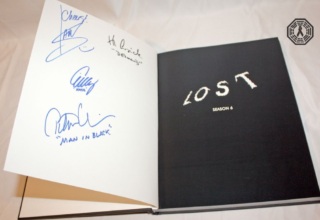Recent breakthroughs in genetically sequencing pediatric brain tumors have opened the door to more accurate, real-time diagnoses that are crucial to effective disease management, clinical trial enrollment and how doctors monitor a child’s response to treatment.
Unfortunately for many patients — especially children diagnosed with highly aggressive brain tumors like pediatric high-grade gliomas (pHGG) and diffuse intrinsic pontine glioma (DIPG), the current method of collecting tissue samples through surgical biopsy carries significant risk, and DNA sequencing of the tissue typically takes two to four weeks. Because DIPG and pHGG tumors mutate quickly, these sequencing results are often outdated by the time treatment begins.
By funding the launch of a new initiative at the University of Michigan’s Koschmann Lab, the Pediatric Brain Tumor Foundation has helped discover a way to provide doctors faster, more accurate test results for children battling these high-risk brain tumors.
In partnership with Catching Up With Jack, PBTF provided a $70,000 grant in 2021 for the Koschmann Lab’s project “Rapid Molecular Testing of High-Risk Pediatric Brain Tumors.” Led by the lab’s leader Dr. Carl Koschmann and post-doctoral fellow Jack Wadden, Ph.D., this project leveraged technology using liquid biopsies from cerebrospinal fluid and blood to analyze genetic mutations in DIPG tumors. The project created a panel of the most common mutations two to three times the size of traditional panels for analyzing tumor biomarkers detected in liquid biopsies.
Additionally, preliminary results from this research project showed that the Koschmann Lab’s method assessed the mutation burden as it was developing, sooner than an MRI could detect growth. This means that doctors can catch a rapidly mutating tumor faster and bring a more ‘real time’ therapy into the mix, rather than waiting for the traditional MRI. This is a significant, tangible advancement for children and teens with the most aggressive brain tumors, with the potential to help children and adults battling other forms of cancer.
Building on the progress from our 2021 grant, PBTF is thrilled to announce our funding of a follow-up project, “Low-Cost and Accurate Testing of High-Grade Brain Tumors,” that leverages the Koschmann Lab’s interdisciplinary expertise in computer science and pediatric neuro-oncology. Funded in partnership with Catching Up With Jack, Hope for Kids, and the Bradley Zankel Foundation, the $130,000 grant will address the issues of delayed diagnosis and the safety of repeated tumor biopsies by using:
- Low-cost DNA sequencers and pHGG focused assays to offer patients a more rapid molecular diagnosis
- Blood plasma samples instead of cerebrospinal fluid to reduce the need for lumbar punctures for serial tracking of tumor response in the clinic
- Novel bioinformation error correction techniques on the samples to enable rapid, low cost, accurate detection of tumor response directly from patient plasma
The largest patient advocacy funder of pediatric brain tumor research, PBTF’s funding of this and other projects has resulted in an improved understanding of childhood brain tumors, new therapies and technologies, and multi-million-dollar grants that multiply our impact and lead to more clinical trials. We invest in novel concepts brought forward by researchers around the world across basic, translational and survivorship science, clinical trials, core resources, and research meetings and collaboratives.
Sign up today to stay connected with PBTF and receive updates about pediatric brain tumor research, resources for families, upcoming events, and much more: www.curethekids.org/stay-connected.



